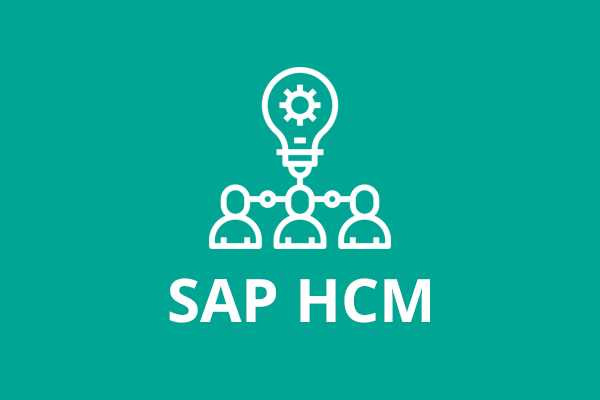SAP SuccessFactors Employee Central Payroll
Streamline Global Payroll with SAP SuccessFactors EC Payroll: Automate, Integrate, Comply with Confidence. Become a SuccessFactors Payroll Consultant.Preview SAP SuccessFactors Employee Central Payroll course
Price Match Guarantee Full Lifetime Access Access on any Device Technical Support Secure Checkout Course Completion Certificate 83% Started a new career
BUY THIS COURSE (GBP 29)
83% Started a new career
BUY THIS COURSE (GBP 29)
-
 90% Got a pay increase and promotion
90% Got a pay increase and promotion
Students also bought -
-

- SAP SuccessFactors Compensation and Variable Pay
- 25 Hours
- GBP 29
- 360 Learners
-

- SAP SuccessFactors Employee Central (end-to-end)
- 15 Hours
- GBP 29
- 1850 Learners
-

- SAP HCM (Human Capital Management)
- 20 Hours
- GBP 29
- 2492 Learners

SAP SuccessFactors EC Payroll – Self-Paced Online Course
Modern organizations demand accurate, efficient, and compliant payroll processing to ensure employee satisfaction and organizational trust. SAP SuccessFactors Employee Central Payroll (EC Payroll) is a robust cloud-based solution that delivers enterprise-grade payroll processing for global workforces. This self-paced, online course is designed for HR professionals, SAP consultants, payroll administrators, and system integrators aiming to master the configuration, operation, and integration of EC Payroll within the SuccessFactors ecosystem.
This course provides a deep dive into the core features and architecture of EC Payroll, enabling learners to handle end-to-end payroll operations, statutory compliance, off-cycle payments, and integrations with Employee Central. You’ll start with foundational concepts, including the global payroll control center, pre-payroll checks, and the configuration of payroll areas, schemas, and rules.
As you progress, the course focuses on detailed configuration steps such as setting up wage types, infotypes, payroll periods, and retroactive accounting. You’ll gain a functional understanding of how payroll engines process data, calculate results, and generate payslips, while learning how to troubleshoot typical issues using log analysis and audit tools.
A key emphasis is placed on integration with Employee Central and Time Management, ensuring payroll receives accurate, real-time data on employee records, time evaluation results, and organizational changes. You'll explore how to synchronize employee data across systems, manage replication errors, and validate data consistency for seamless payroll execution.
Practical modules introduce payroll posting to finance, handling off-cycle runs (like bonuses, severance, and corrections), and administering country-specific statutory compliance, including tax calculations, social insurance, and year-end reporting. Whether you’re working in the U.S., Germany, India, or any localization, the course provides country-specific considerations and how SAP pre-delivered content supports legal frameworks.
You’ll also learn to use the Payroll Control Center (PCC), a powerful monitoring and execution tool. The course covers how to define process templates, configure KPIs, manage payroll alerts, and automate exception handling—key for streamlining payroll operations across large enterprises.
Hands-on labs and real-world scenarios ensure that you not only learn the “how,” but also the “why.” Exercises cover topics like resolving payroll run errors, managing retro pay issues, and testing payroll simulations before final posting. Additionally, you’ll learn best practices for secure data handling, audit compliance (e.g., GDPR), and minimizing risks during global payroll operations.
Whether you're aiming to support an EC Payroll implementation or become an SAP Payroll Consultant, this course builds your capabilities to configure, test, and support payroll processes from start to finish.
The course is suitable for:
-
Beginners looking to break into SAP Payroll
-
SAP HCM consultants transitioning to the cloud
-
HRIS professionals managing integrated HR and payroll systems
-
Payroll managers seeking deeper technical knowledge
You’ll receive lifetime access to video tutorials, step-by-step configuration guides, quizzes, templates, and interview prep materials, enabling you to refresh your knowledge or update your skills with each new SAP release.
By course end, you'll be confident in running EC Payroll across any organization, ensuring compliance, speed, and accuracy while supporting business continuity and employee trust.
Course/Topic 1 - Course access through Google Drive
-
Google Drive
-
Google Drive
By the end of this course, learners will be able to:
-
Understand the architecture of SAP SuccessFactors EC Payroll and its integration with Employee Central.
-
Configure payroll areas, schemas, rules, wage types, and calendars.
-
Perform end-to-end payroll runs, retroactive accounting, and off-cycle payments.
-
Use the Payroll Control Center for error handling, monitoring, and reporting.
-
Administer country-specific payroll configurations and legal compliance.
-
Post payroll results to SAP Finance and handle auditing and data security.
-
Integrate time management, benefits, and organizational data with payroll.
-
Troubleshoot payroll errors using logs, reports, and admin tools.
-
Simulate and validate payroll before final execution.
-
Prepare for SAP EC Payroll certification and real-world projects.
Course Curriculum:
1 - Overview of SAP EC Payroll
2 - Getting started with SF EC Payroll
3 - Prerequisites and Initial Configurations
4 - EC to EC Payroll Integration
5 - UK Payroll at a glance
6 - Project Team Orientation (PTO)
7 - Integrating Time Off and EC Payroll
8 - PCC Configuration and Roles
Upon successful completion, learners receive a Course Completion Certificate from Uplatz, demonstrating proficiency in SAP EC Payroll setup and administration.
This certificate validates your capability to manage end-to-end payroll processes, configure payroll schemas and rules, and ensure compliance with local legislation through the EC Payroll system.
Whether applying for consulting roles or in-house positions, this certification strengthens your resume and enhances your visibility for roles such as:
-
SAP EC Payroll Consultant
-
Payroll Implementation Specialist
-
HRIS & Payroll Integration Analyst
-
SAP HCM Cloud Payroll Lead
Mastering SAP SuccessFactors EC Payroll opens up a range of roles in global organizations and consulting firms transitioning to cloud-based HR systems. As compliance and automation become strategic priorities, skilled payroll professionals with EC Payroll knowledge are in high demand.
Potential job roles:
-
SAP EC Payroll Consultant
-
SAP HCM Cloud Consultant
-
Global Payroll Specialist
-
HRIS Payroll Integration Analyst
-
Payroll Control Center Administrator
-
SAP Implementation Project Manager
Organizations across finance, healthcare, manufacturing, and IT actively recruit EC Payroll talent to modernize and optimize their payroll functions.
1. What is SAP EC Payroll?
A cloud-based payroll solution integrated with SAP SuccessFactors Employee Central, designed to handle end-to-end payroll processes, compliance, and reporting.
2. How does EC Payroll differ from SAP On-premise Payroll?
EC Payroll is cloud-based, leverages the Payroll Control Center, and integrates with Employee Central for master data—whereas on-premise payroll uses SAP ERP HCM.
3. What are wage types in EC Payroll?
Wage types represent individual components of employee pay, such as base salary, bonuses, or deductions.
4. What is the role of Payroll Control Center (PCC)?
PCC helps manage, monitor, and control payroll processing through real-time KPIs, alerts, and automated processes.
5. How do you handle retroactive accounting?
Retro pay is managed via schemas and rules that compare past payroll results to updated master data, calculating any necessary adjustments.
6. Can EC Payroll support multiple countries?
Yes, it supports global payroll processing with country-specific legal compliance content delivered by SAP.
7. What is a schema in payroll?
A schema is a framework of payroll rules and functions used by the payroll engine to calculate results.
8. How is time data integrated with EC Payroll?
Through Employee Central Time Management, where time evaluation results flow into EC Payroll for processing leave, overtime, etc.
9. What are off-cycle payrolls?
Special payroll runs conducted outside the regular cycle, e.g., for bonuses, corrections, or terminations.
10. How do you handle payroll errors?
Errors are identified through logs or alerts in PCC and resolved by checking schema logic, infotype data, or integration consistency.









